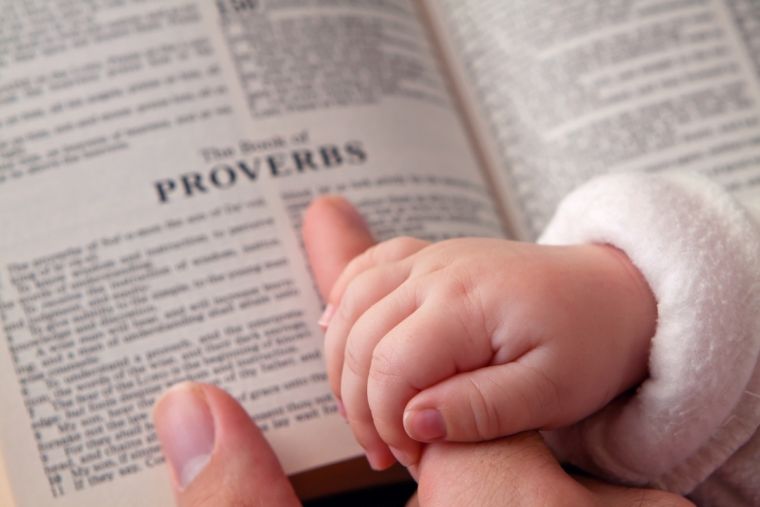 (Photo: Getty/iStock)
(Photo: Getty/iStock)
The General Assembly of the Church of England made the first request to the new government, and, unusually, it was one that everyone in the chamber could support. In a multi-faceted motion inspired by the experience of Wigan parishioner Christine, the Assembly resolved to “call on Her Majesty’s Government and health care providers to ensure that mothers whose unborn children may have a disability are given comprehensive and impartial information about the condition and the support available to them.”
The motion was presented by the Reverend Pete Spears, who himself was affected by the drug thalidomide. The motion began by asserting that “every person is unique and precious, created in the image of God,” challenged the “common assumption that bringing a child with a disability into the world is a tragedy that should be avoided,” and called for increased support for “parents and families of children born with disabilities” from both public and church organizations.
The bishop spoke of an informal group in his diocese called the Magnificat Group, which brings together “people with experience of disabilities and infant loss, as well as good and bad examples of the support and advice given to parents and children who received the news of an unexpected pregnancy.”
With more than 3,000 abortions carried out on disability grounds each year in England and Wales, Pete expressed concern that “the Church is in danger of being silent on issues that are too difficult. But there was no need to worry. For nearly an hour, one Synod member after another spoke of their experiences and support for the motion.
Like Pete, some were grateful to have been born before genetic testing became commonplace. Mary Bucknall, who was born with a severe hearing impairment along with her sister, said, “Some would argue it would have been better for us not to have been born with a disability. But I believe God has a purpose for creating people with disabilities in the womb – so that His love and care may be visible to all. I myself have experienced God’s love and care through the many wonderful people I have met on my life’s journey.”
Lay Synod member Rebecca Chapman spoke of the “round of testing” she faced when a scan at 20 weeks pregnant revealed soft markers. The Archbishop of Canterbury spoke of his daughter Ellie, now 32, who has a neurodevelopmental disorder, and the testing his wife was offered during her pregnancy. They were told in no uncertain terms that if the test was positive they would be forced to seek an abortion. They were told it would be ‘expensive’ and it was not a neutral process.”
Elaine Heath, another member of Deaf Anglicans Together, spoke in sign language with the help of an interpreter. She spoke of her own experience of becoming pregnant at 38 and how a doctor “said, ‘Well, you’re almost 40’ and said you needed to be tested. I didn’t want to have an abortion so I didn’t want to be tested.”
Parents spoke about the joys and challenges of raising children with disabilities, Down’s syndrome, neurodiversity, severe learning disabilities and invisible physical disabilities.
One grandmother brought tears to the audience as she described her experience supporting her daughter and son-in-law as they suffered the news that their beloved son had severe brain damage and was not ready to live. “I had the honor of naming and blessing a beautiful grandson who I know is with Jesus,” she said. But she asked for prayers for her daughter, who struggles to find “the right support to acknowledge the pain of being a mother with empty arms.”
A common theme among parents of children with disabilities was the difficulty of supporting their children into adulthood, with Rev. Alice Kemp saying: “The transition can be really difficult when all the support you have from hospitals, paediatricians, schools and therapists disappears, sometimes overnight. The transition is supposed to be gradual but in reality it isn’t and often by the time your child reaches their 18th birthday the world has changed.”
Communities like L’Arche were praised, as were those that provide opportunities for meaningful employment. Rev. Kate Wharton said a highlight of the synod was hearing activist Heidi Crowther preach on Psalm 139. “Heidi said, ‘God created us, extra chromosome and all. He created our innermost being, and I think that’s who we really are, and we should use all of ourselves for God’s glory.'”
Time ran out before the Reverend Neil Barber, who also has the pleasure of knowing the Crowther family, spoke about his own experience of raising a child with severe learning disabilities.
“Parents of special needs children often carry huge, invisible burdens at many parts of their lives, and there is too much bad news about special needs families giving up on the church because it’s too difficult for them to attend,” he said after the discussion. “I thank God for the church community that has loved and blessed my family from my son’s childhood through to adulthood. It takes work and determination, but it will only truly happen when, at the grassroots level, the church is literally good news for everyone. And as Heidi pointed out to me, that is exactly what Jesus requires.”
Sir Keir Starmer may want to run a government free from dogma, but after Sunday’s debate there is no doubt the Assembly will want to remind him and his parliamentary colleagues that every person is unique and valuable, created in the image of God.
You can watch the full debate here

